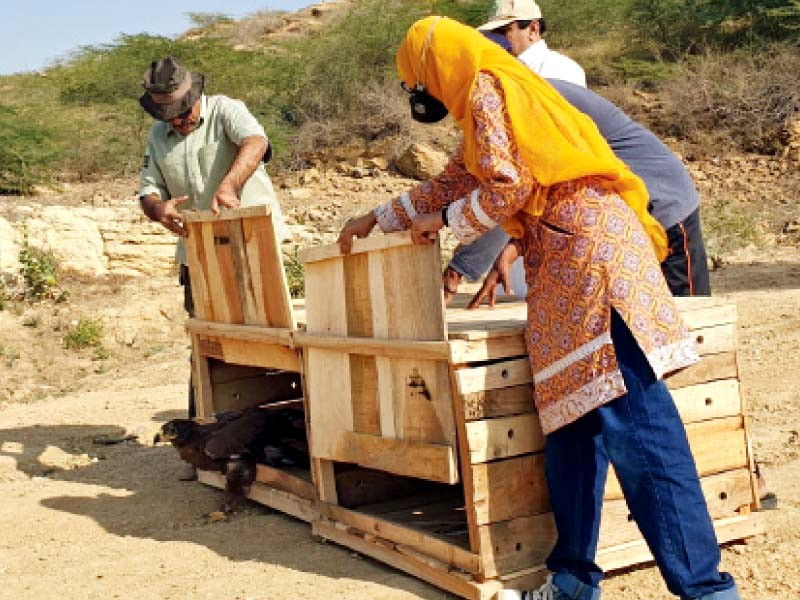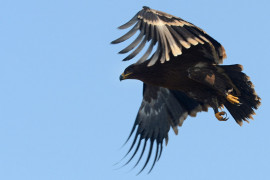
It has been decided on Tuesday, that the Sindh Wildlife Department (SWD) will initiate scientific methods to trace all of its animals and reptiles for future research.
To initiate with, first samples of turtle population to develop sequence will be started within a few days. "It will play a milestone in turtle preservation," said SDW provincial head, Javed Ahmed Mahar.
"We want to trace the genetic record of turtles in coming years," he said, adding: "And, it is first ever initiative being taken in Pakistan."
Speaking to The Express Tribune, Mahar further mentioned that his department has also decided to start genetic study of endangered Indus blind dolphins. He said that the scientific organisations were taken on board to support his department. "It is the need of the time." He said that the collection of DNA samples of all the animals will help in the process of further research.
Read More: SWD sets free two hawks
Turtle count The in-charge of the Marine Turtle Unit Hawks Bay, Ashfaq Memon informed The Express Tribune that total 2,000 green baby turtles have been released since September this year so far. He said that turtles were visiting the beach for nesting for years and at least 10,000 eggs have been recorded this year. "The nesting season will continue till mid of January," he said.
The SWD established the turtle unit in 1970 and according to the official record a total of 862,000 marine turtles have been released so far.
He also disclosed that total 20 female turtles have been tagged in this season. Olive ridley Unfortunately, three bodies of olive ridley turtles were found at two places. The first two bodies were recovered from Hawks Bay beach and another one was found from Sea View.
"All three turtles were hit by something like boats," Mahar said. He said that it was not possible to preserve them. He said that one olive ridley turtle was kept in department's museum last year. "We found that [fresh] body from the same beach," he added.
Speaking to The Express Tribune, Muhammad Moazzam, the technical adviser for marine fisheries at the Karachi office of the World Wide Fund for Nature-Pakistan (WWF-Pakistan), said that olive ridley turtles have stopped visiting Pakistan's beaches for the last 20 years.
"We have not witnessed this specie since 2001," Moazzam said. "The offshore population of olive ridley turtles is on the rise," he said, adding that the studies from 2013 to 2019 showed that the total number of green and olive ridley turtles was around 28,000.
"But there is no record that could prove that these turtles have been nesting at Pakistani beaches in 20 years." He said that one of the reasons of disappearance this specie was due to climate change. Mahar was of the views that, most of the nesting sites of [olive ridley] turtles have been occupied.


1725877703-0/Tribune-Pic-(5)1725877703-0-165x106.webp)


















COMMENTS
Comments are moderated and generally will be posted if they are on-topic and not abusive.
For more information, please see our Comments FAQ